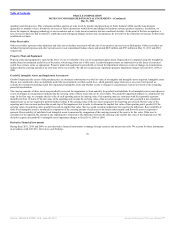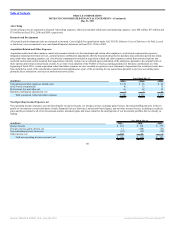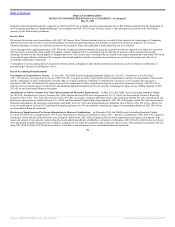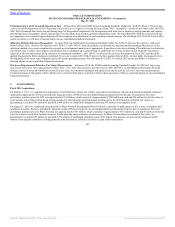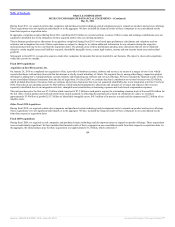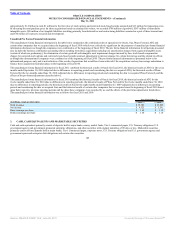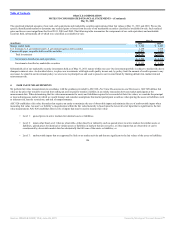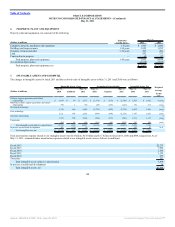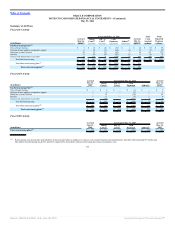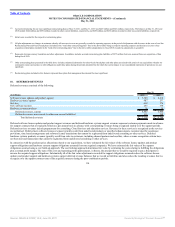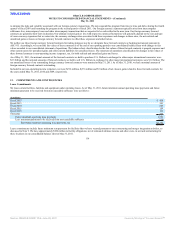Oracle 2010 Annual Report Download - page 111
Download and view the complete annual report
Please find page 111 of the 2010 Oracle annual report below. You can navigate through the pages in the report by either clicking on the pages listed below, or by using the keyword search tool below to find specific information within the annual report.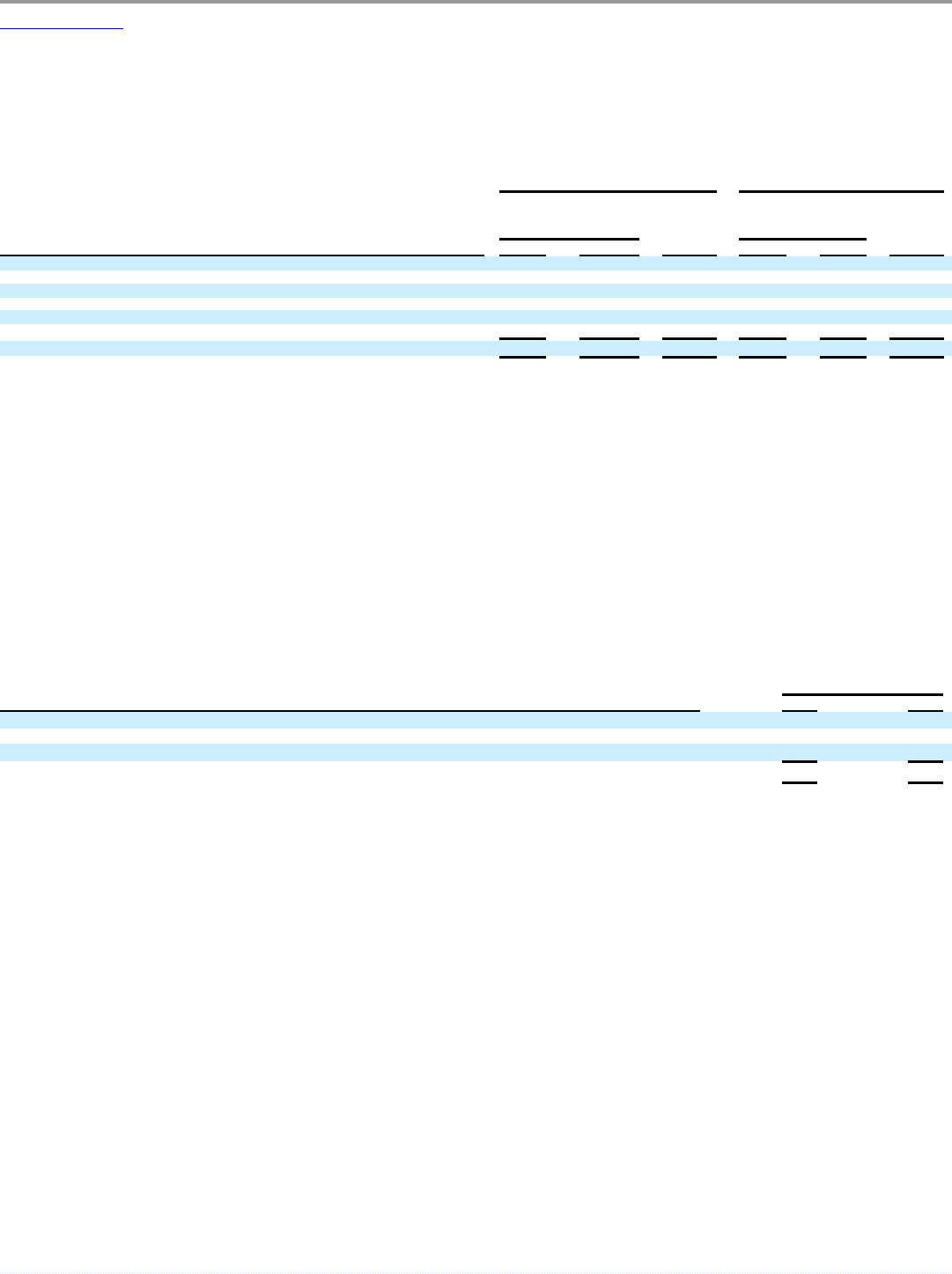
Table of Contents
ORACLE CORPORATION
NOTES TO CONSOLIDATED FINANCIAL STATEMENTS—(Continued)
May 31, 2011
Assets Measured at Fair Value on a Recurring Basis
Our assets measured at fair value on a recurring basis, excluding accrued interest components, consisted of the following types of instruments (Level 1 and 2
inputs are defined above):
May 31, 2011 May 31, 2010
Fair Value
Measurements
Using Input Types
Fair Value
Measurements
Using Input Types
(in millions) Level 1 Level 2 Total Level 1 Level 2 Total
Assets:
Money market funds $ 3,362 $ — $ 3,362 $ 2,423 $ — $ 2,423
U.S. Treasury, U.S. government and U.S. government agency debt securities 1,150 — 1,150 3,010 — 3,010
Commercial paper debt securities — 11,884 11,884 — 3,378 3,378
Corporate debt securities and other 106 1,885 1,991 — 2,256 2,256
Derivative financial instruments — 69 69 — 33 33
Total assets $ 4,618 $ 13,838 $ 18,456 $ 5,433 $ 5,667 $ 11,100
Our valuation techniques used to measure the fair values of our money market funds, U.S. Treasury, U.S. government and U.S. government agency debt
securities and certain other marketable securities that were classified as Level 1 in the table above were derived from quoted market prices as substantially all of
these instruments have maturity dates (if any) within one year from our date of purchase and active markets for these instruments exist. Our valuation techniques
used to measure the fair values of all other instruments listed in the table above, generally all of which mature within one year and the counterparties to which
have high credit ratings, were derived from the following: non-binding market consensus prices that are corroborated by observable market data, quoted market
prices for similar instruments, or pricing models, such as discounted cash flow techniques, with all significant inputs derived from or corroborated by observable
market data. Our discounted cash flow techniques used observable market inputs such as LIBOR-based yield curves, among others.
Our cash and cash equivalents, marketable securities and derivative financial instruments are recognized and measured at fair value in our consolidated financial
statements. Based on the trading prices of our $15.9 billion and $14.6 billion of borrowings, which consisted of short-term borrowings and senior notes that were
outstanding at May 31, 2011 and senior notes and commercial paper notes that were outstanding as of May 31, 2010 and the interest rates we could obtain for
other borrowings with similar terms at those dates, the estimated fair values of our borrowings at May 31, 2011 and May 31, 2010 were $17.4 billion and $15.9
billion, respectively.
5. INVENTORIES
Inventories consisted of the following:
May 31,
(in millions) 2011 2010
Raw materials $ 94 $ 95
Work-in-process 17 43
Finished goods 192 121
Total $ 303 $ 259
107
Source: ORACLE CORP, 10-K, June 28, 2011 Powered by Morningstar® Document Research℠




